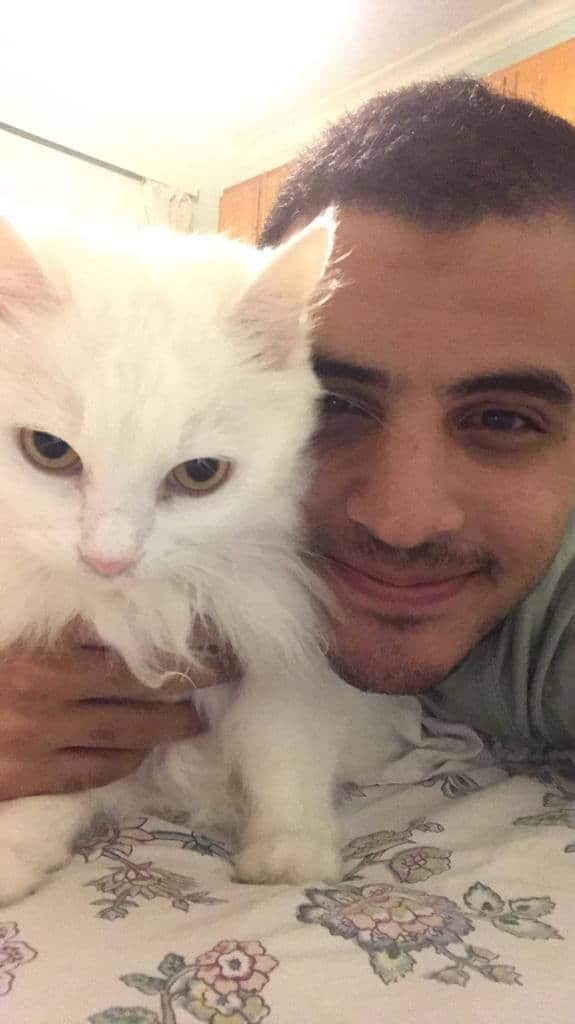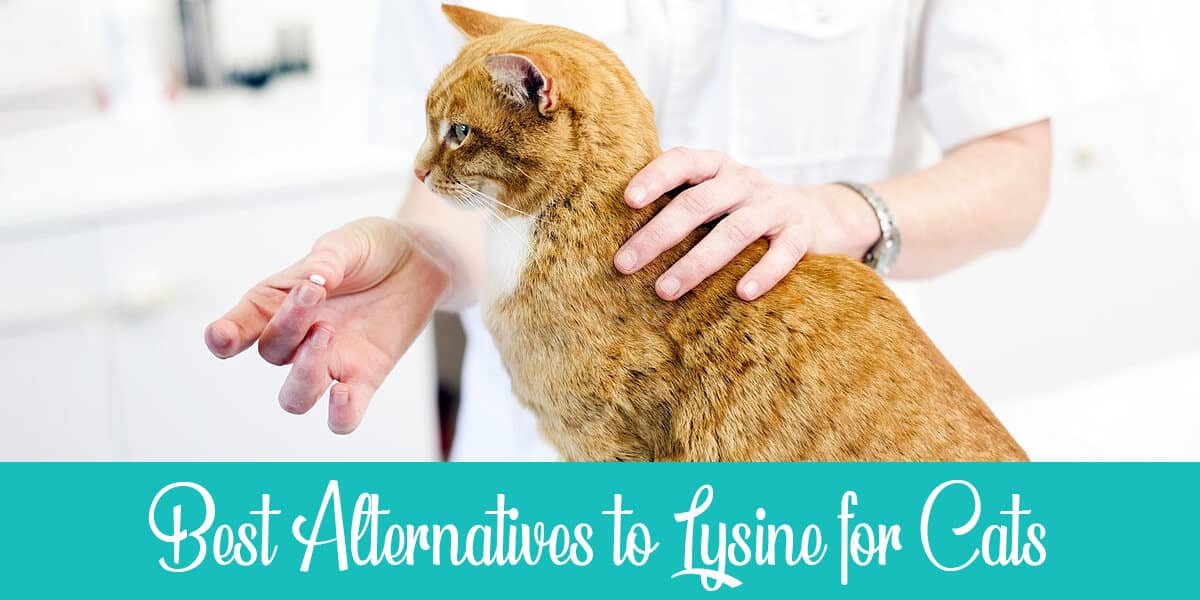Lysine is an amino acid that has been promoted for the prevention and treatment of Feline Herpes Virus Type-1 (FHV-1) infection. It has proven ineffective and it’s not without side effects. There are, however, more than one alternative to lysine for cats.
They might be very helpful in boosting your cat’s immune system and the management of FHV-1. Here are some of them.
Table of Contents
Bovine Lactoferrin
Bovine lactoferrin is a protein found in colostrum. Colostrum is produced by the mother on the first day or two after birth. It’s an antibody-rich fluid with anti-infective, anti-cancer, and anti-inflammatory benefits.
There’s some scientific as well as anecdotal evidence that bovine lactoferrin improves respiratory infections and treats FHV-1. It’s usually recommended to be used with lysine. The combination yielded better improvement in 20% of cats than lysine on its own.
Moreover, lactoferrin can boost the immunity of your cat. It also prevents common viral infections, including herpes, influenza, and gastroenteritis.
There are no significant side effects for lactoferrin, except if your cat is lactose intolerant. It might experience diarrhea.
As for dosage, cats with herpes will need ongoing maintenance, of about 250 mg for adult cats and 125 mg for kittens per day.
Famciclovir
Famciclovir is an antiviral drug prescribed for herpes simplex and zoster in humans. It’s, however, a very promising option in treating feline herpes infection.
Although famciclovir isn’t FDA-approved for use in animals, it has proven very effective in reducing FHV’s ocular and respiratory symptoms. It decreases the risk of permanent damage to nasal and sinus tissues. This is done by selectively inhibiting viral DNA polymerase, preventing viral replication.
It’s not without side effects and isn’t always well-tolerated. It can cause nausea, vomiting, diarrhea, and low-grade fever. Giving the drug with food can help reduce stomach upset. Also, beware of drug interactions if you give your cat probenecid as well.
Avoid using this drug in pregnant or nursing cats, except when prescribed by a veterinarian. It’s excreted into breast milk and can pass through the placenta.
Related: Top Alternatives to Atopica for Cats
Probiotics

Probiotics are living microorganisms that restore gut flora, improving immunity, and overall health. It’s thought that the microbes hosted by mammals outnumber their cells. It affects how nutrients are metabolized, how the immune system functions, and even mental health.
There’s some evidence that probiotics, especially Fortiflora and SF68, help with the symptoms of feline herpes infection. They lead to fewer conjunctivitis and rhinitis flare-ups as well as decreased severity of the attacks.
Fortiflora also comes with the side benefit of being a readily available source of animal digest, making food smell better. It’s helpful if you’re trying to switch from dry to wet food.
They’re both well tolerated with few side effects. However, you should always look out for vomiting, diarrhea, and allergic reactions. Although it’s rare for your cat to develop a reaction to a probiotic, it could be intolerant to some of the other ingredients.
Plus, always look for the NASC Quality Seal, which identifies high-quality brands that are committed to the health and safety of your pet.
Thymus Extract
The thymus is a small gland that has a critical role in the immune response of animals as well as humans. It stimulates the production of white blood cells that are responsible for fighting infection.
Thymus extract can be made of the cow thymus gland or synthetically produced. It’s found in many health stores or online. It works for respiratory infections, food allergies, and autoimmune diseases.
If your little feline friend is suffering from food allergies, you can check those top z/d cat food alternatives.
Theoretically, it should improve sneezing and goopy eyes associated with feline herpes. It supposedly does, according to individual experiences. It’s not recommended for use for long-term management, though, just for flare-ups.
There are no documented side effects, and it’s generally well-tolerated. Give your cat capsules twice a day or sprinkle it on food to mask the taste.
Lifestyle Changes
Finally, some of the best measures you can do for your cat are providing it with a healthy diet and a loving environment. Don’t underestimate the power of lifestyle changes in improving your cat’s mood as well as immunity.
Environment
Creating the best environment for your cat is of utmost importance. Pay attention to the cleanliness of their litter box and food bowls. Always disinfect using antiseptics and detergents as the virus is labile.
Keep your cat stimulated and don’t neglect playtime. If you have many cats, make sure there are enough resources so that they don’t have to compete over them.
Healthy Diet

Nutrition is essential for good immunity and health. Always keep your cats well-nourished with a complete diet. If your cat is anorexic, it should be fed blended, highly palatable, warmed up food.
Some say grain-free diets help decrease arginine and reduce viral replication. This could be worth a trial, but there’s no significant evidence for it. Additionally, you can consider adding vitamin D, vitamin C, and vitamin K to your cats’ supplements to boost their immunity.
Further, there’s some evidence that adding catnip can be beneficial for your cat’s mood and overall health.
Additional Measures
Other measures that can help substitute lysine in management of FHV-1 are:
- mucolytic drugs
- nebulization with saline
- broad-spectrum antibiotics to prevent secondary infection
Conclusion
FHV-1 is a serious infection, causing your cat to feel unwell as well as posing a dangerous risk for permanent damage of eyes, skin, and nasal and sinus tissues.
Although lysine has been used for years, it falls short when it comes to trials. However, there are alternatives that prove effective and beneficial.
Most importantly, provide your cat with a healthy diet and a tender, caring environment. This can make or break your cat’s health, and subsequently, immunity and infection risk.
There are also some supplements that can help prevent and treat flare-ups as well as boost overall immunity and maintain long-term remission. These are bovine lactoferrin, probiotics, and thymus extract.
You can also use drugs, such as famciclovir, to directly treat flare-ups and prevent permanent damage. Remember to always consult your veterinarian before adding anything to your cat’s routine.

I’ve been living with cats since 2008 and I can confidently say I have more feline friends than humans lol. I currently live with 5 cats in different life stages; two of them are less than one year old, one is 2-ish years old and the oldest two are 9-ish years old. I’ve developed a strong bond with cats over the years and I’m eager to share my experience through this blog. You can learn more about my cats here.

